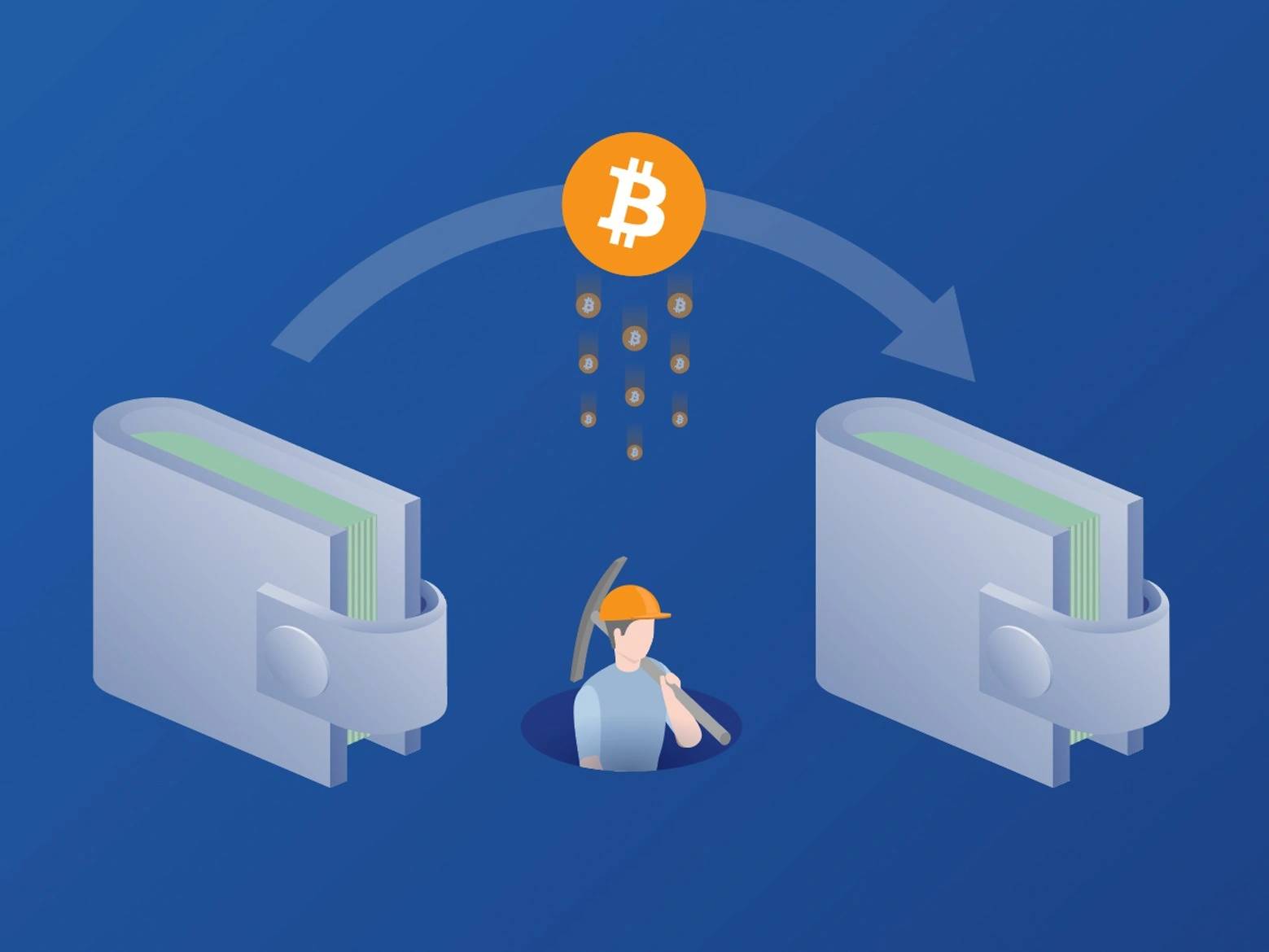위키 구독하기
Share wiki
Bookmark
Transaction Fee
에이전트 토큰화 플랫폼 (ATP):에이전트 개발 키트(ADK)로 자율 에이전트 구축
0%
Transaction Fee
거래 수수료는 사용자가 블록체인 네트워크에서 거래를 용이하게 하고 우선순위를 지정하기 위해 지불하는 특정 암호화폐의 양입니다. 암호화폐 거래소에서 부과하는 거래 수수료와 달리 거래 수수료는 일반적으로 네트워크 채굴자(작업 증명 시스템(예: 비트코인)에서) 또는 검증인(병합 후 이더리움과 같은 지분 증명 시스템에서)에게 거래를 검증하고 새 블록에 추가한 것에 대한 보상으로 지급됩니다.[1]
개요
거래 수수료는 네트워크의 검증인에게 지급되며, 이들은 작업 증명 시스템에서는 채굴자로, 다른 유형의 합의 메커니즘(예: 지분 증명)에서는 단순히 검증인으로 알려져 있습니다.[1] 이러한 수수료는 거래를 검증하고 처리한 것에 대한 보상 역할을 합니다. 채굴자 또는 검증인은 블록체인에 거래를 추가하는 역할을 담당하며, 일반적으로 거래 수수료와 경우에 따라 새로 발행된 암호화폐로 보상을 받습니다. 거래 수수료는 블록체인 네트워크의 보안, 효율성 및 적절한 기능을 보장하는 데 중요한 역할을 합니다. 거래 수수료의 금액은 특정 암호화폐, 현재 네트워크 혼잡도, 거래 규모 및 우선순위에 따라 달라질 수 있습니다. 일반적으로 거래 규모가 크고 네트워크 혼잡도가 높은 시간에 제출된 거래는 더 높은 거래 수수료가 발생할 가능성이 높습니다.[6]
거래 수수료는 블록체인에 따라 다릅니다. 비트코인의 수수료는 네트워크 혼잡도를 기준으로 하는 반면, 이더리움의 NFT 발행과 같은 복잡한 거래는 계산 집약도로 인해 더 높은 수수료가 필요합니다. 비트코인과 이더리움은 최고 입찰자가 다음 블록에서 거래 공간을 확보하는 경매 스타일 수수료 모델을 따릅니다.[2]
거래 수수료는 거래 수수료와 혼동해서는 안 됩니다. 거래 수수료는 거래 플랫폼에서 금융 자산을 사고파는 데 드는 비용을 구체적으로 지칭하는 반면, 거래 수수료는 다양한 금융 거래 및 서비스와 관련된 더 광범위한 수수료를 포함합니다. 거래 수수료와 거래 수수료를 받는 당사자는 특정 금융 거래 및 관련 서비스에 따라 다릅니다. 거래 수수료는 일반적으로 브로커, 마켓 메이커 또는 거래소로 가는 반면, 거래 수수료는 거래 처리를 담당하는 금융 기관 또는 네트워크 검증인이 징수합니다.
유형
블록체인 거래/네트워크 수수료
블록체인 거래 수수료는 사용자가 블록체인 네트워크에서 거래를 수행할 때 부과됩니다. 이러한 수수료는 채굴자 또는 검증인이 거래를 검증하고 블록체인에 추가한 것에 대한 보상 역할을 합니다. 많은 블록체인 네트워크에서 수수료율은 채굴자가 수수료 요구 사항을 설정하고 거래 발신자가 이를 수락하거나 거부할 수 있는 자유 시장 메커니즘을 통해 결정됩니다.[3][6]
거래소 수수료
거래소 수수료는 사용자가 암호화폐 거래소에서 거래할 때 발생합니다. 이러한 수수료는 거래소가 거래를 용이하게 하고 수익을 창출하기 위해 부과합니다. 거래소는 시장을 용이하게 하고 암호화폐 투자에 대한 주요 진입점입니다.[4][6]
지갑 수수료
지갑 수수료는 지갑의 인프라 유지 관리 및 개발을 지원합니다. 지갑은 암호화폐를 안전하게 저장하고 관리하는 데 필수적인 도구이기 때문입니다.[6] 지갑 수수료는 특정 지갑에 암호화폐를 보관하는 데 부과될 수 있습니다. 일부 지갑은 더 낮은 수수료를 제공하는 반면, 다른 지갑은 향상된 보안 및 개인 정보 보호 기능을 제공하여 사용자의 지갑 선택에 영향을 미칠 수 있습니다.[5][7]
거래 수수료에 영향을 미치는 요인
- 네트워크 혼잡도: 블록체인 네트워크에 대한 수요가 높으면 혼잡이 발생하여 거래 처리가 지연될 수 있습니다. 혼잡한 기간에는 사용자가 거래 우선순위를 지정하기 위해 더 높은 수수료를 지불해야 할 수 있습니다.
- 거래 우선순위: 사용자는 일반 거래 또는 신속 거래 중에서 선택할 수 있습니다. 더 빠른 확인을 선택하면 채굴자가 다음 블록에 거래를 포함하도록 장려하기 위해 더 높은 수수료를 지불해야 하는 경우가 많습니다.
- 거래 규모: 데이터 크기 측면에서 더 큰 거래는 더 많은 블록 공간과 계산 리소스를 소비합니다. 따라서 일반적으로 더 높은 수수료가 발생합니다.
- 블록체인 프로토콜: 블록체인 프로토콜마다 수수료 구조가 다릅니다. 예를 들어 비트코인의 수수료는 거래의 데이터 크기에 따라 결정되는 반면, 이더리움의 수수료는 관련된 스마트 계약의 복잡성에 영향을 받습니다.
- 가스 가격: 이더리움 및 기타 스마트 계약 플랫폼에서 사용자는 가스 가격을 설정하여 거래 수수료를 결정합니다. 가스 가격이 높을수록 거래가 빠르게 처리될 가능성이 높아집니다.
- 블록 공간 가용성: 각 블록에는 거래에 사용할 수 있는 공간이 제한되어 있습니다. 이 제한된 공간을 놓고 경쟁하는 사용자는 거래가 포함되도록 더 높은 수수료를 입찰해야 할 수 있습니다.
- 시장 수요: 거래 수요는 시장 활동, 이벤트, 새로운 토큰 출시, ICO 또는 인기 있는 거래 활동에 따라 변동할 수 있으며, 블록체인 네트워크가 혼잡해지고 수요 증가로 인해 수수료가 높아질 수 있습니다.
- 채굴자 행동: 채굴자는 블록에 포함할 거래를 선택합니다. 더 높은 보상을 받을 수 있으므로 더 높은 수수료가 있는 거래의 우선순위를 지정할 수 있습니다.
- 외부 요인: 글로벌 이벤트, 규제 변경 및 기술 업그레이드는 네트워크 활동에 영향을 미치고 결과적으로 거래 수수료에 영향을 미칠 수 있습니다.
- 수수료 모델: 일부 블록체인은 사용자가 거래 포함을 위해 입찰하는 경매 스타일 수수료 모델을 사용합니다. 다른 블록체인(예: 솔라나)은 네트워크에서 설정한 결정적 거래 수수료를 사용합니다. 네트워크에 거래를 제출하기 전에 클라이언트는 "getFeeForMessage"라는 RPC 요청을 통해 예상 거래 수수료를 평가할 수 있습니다. 이 수수료 계산은 여러 요소를 고려하며, 주로 거래 내 서명 수를 고려합니다. 서명이 많은 거래는 더 높은 수수료가 발생합니다. 거래에는 추가 수수료가 포함될 수 있으며, 이는 다른 거래에 비해 상대적인 우선순위에 영향을 미칩니다. 이 우선순위 지정 수수료는 컴퓨팅 예산 명령을 통해 거래에서 설정한 대로 컴퓨팅 단위 수에 마이크로 램포트 단위로 표시된 컴퓨팅 단위 가격을 곱하여 계산됩니다.[8]
잘못된 내용이 있나요?
